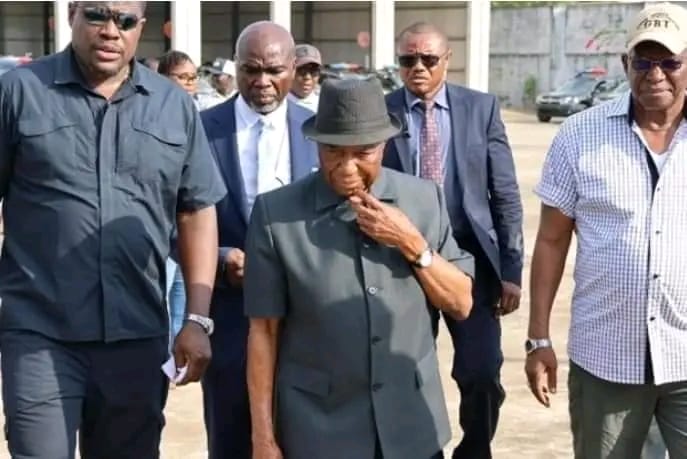The Liberian House of Representatives has taken decisive action to halt the operations of Liberia Traffic Management (LTM), a private company granted a 25-year concession to manage the country’s traffic system. This suspension follows LTM’s failure to appear before a legislative hearing investigating concerns raised by Ministry of Transport employees and commercial drivers about the concession’s legality, potential job losses, and alleged revenue shortfalls for the government. The House Joint Committee on Investment and Concessions and Transport issued the suspension order, effectively returning control of traffic management to the Ministry of Transport, pending a full review of the LTM concession agreement. This move underscores the legislature’s commitment to ensuring transparency and accountability in government contracts and addressing public concerns about their potential impact.
The controversy surrounding the LTM concession has been brewing for some time, culminating in a series of protests and petitions. Over 200 Ministry of Transport employees marched to the Capitol, presenting a petition to Speaker Koon highlighting their anxieties over job security and the potential loss of over US $275 million in government revenue over the concession period. Commercial drivers also staged a large-scale protest, decrying what they perceived as exploitative practices by LTM, including excessive ticketing and alleged extortion. These demonstrations, coupled with the Senate’s call for a halt to the concession’s implementation, created significant pressure on the House to investigate the matter thoroughly.
The House Joint Committee’s decision to suspend LTM’s operations reflects the seriousness of the allegations and the company’s apparent disregard for legislative oversight. LTM’s failure to appear before the committee without explanation was deemed an act of contempt, further solidifying the lawmakers’ resolve to scrutinize the agreement. The Ministry of Transport has been directed to resume its full responsibilities, including vehicle registration, driver licensing, and traffic law enforcement, with the support of the Liberia National Police. This interim measure aims to ensure continuity of services while the legislature conducts its review.
The LTM concession, initially signed in 2018 and ratified by the legislature, aimed to modernize and digitize Liberia’s traffic system, enhance revenue generation, improve road safety, and reduce corruption. However, its implementation, after a period of dormancy, has been met with strong opposition. President Boakai’s reaffirmation of the agreement in January 2025 and the Supreme Court’s subsequent ruling clearing the way for LTM’s operations triggered the wave of protests and petitions that ultimately led to the current suspension. The legislature’s intervention underscores the importance of public engagement and oversight in ensuring that concession agreements serve the best interests of the country and its citizens.
The House Joint Committee’s actions signal a commitment to transparency and accountability in the management of public resources. The summons issued to LTM and its legal counsel to address the contempt charges demonstrates the committee’s determination to uphold its authority and ensure that companies engaged in government contracts comply with legislative oversight. The outcome of the committee’s review will be crucial in determining the future of the LTM concession and shaping the framework for future public-private partnerships in Liberia. The legislature’s proactive engagement in this matter reflects a broader trend towards greater scrutiny of concession agreements and a commitment to ensuring that they benefit the public.
The LTM case serves as a significant example of the power of citizen engagement and legislative oversight in holding government and private entities accountable. The protests by transport employees and drivers, coupled with the petitions and Senate intervention, created a momentum that compelled the House to take decisive action. The suspension of LTM’s operations and the ongoing investigation will not only determine the fate of this particular concession but also set a precedent for future agreements. This case underscores the importance of robust legislative oversight and public participation in shaping public policy and ensuring that contracts serve the interests of the nation and its people. The outcome will be closely watched by stakeholders across Liberia, including citizens, businesses, and international partners, as it will have significant implications for the future of public-private partnerships and the management of public resources.


